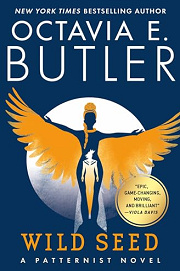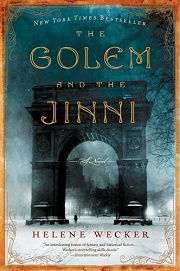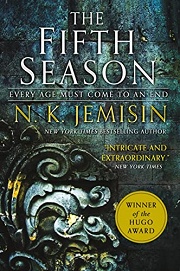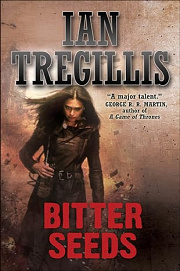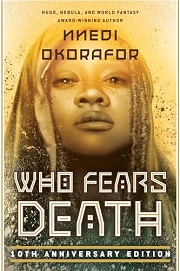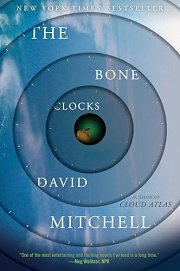Share your thoughts in a quick Shelf Talk!
Wild Seed by Octavia E. Butler
Two immortals—one a nurturing shapeshifter, the other a domineering maker of monsters—collide across centuries from West Africa to the New World. Wild Seed is a haunting, intimate epic about power, consent, and the long fight to define yourself against those who would claim you.
Have you read this book? Share what you liked (or didn’t), and we’ll use your answers to recommend your next favorite read!
Love Wild Seed but not sure what to read next?
These picks are popular with readers who enjoyed this book. Complete a quick Shelf Talk to get recommendations made just for you! Warning: possible spoilers for Wild Seed below.
In Wild Seed, did you enjoy ...
... the slow, hard-won bond between two powerful, inhuman beings navigating a historical world that misunderstands them?
The Golem and the Jinni by Helene Wecker
If the wary, ever-shifting bond between Anyanwu and Doro—full of negotiation, constraint, and hard-earned trust—hooked you, you’ll love how Chava (a golem) and Ahmad (a jinni) circle each other in 1890s New York. Like Anyanwu learning how to survive under Doro’s rules and still keep her selfhood, Chava and Ahmad test each other’s boundaries on rooftops and in tenement workshops, trying to balance freedom with belonging amid Little Syria and the Lower East Side. The result is a tender, prickly relationship that evolves scene by scene, much like the uneasy truces and breakthroughs you remember from Wild Seed.
... morally gray power players whose survival-driven choices reshape societies?
The Fifth Season by N. K. Jemisin
If Doro’s chilling breeding calculus and Anyanwu’s painful compromises fascinated you, the choices Essun, Syenite, and Alabaster make will floor you. From the devastating decision at Meov to the obelisk-rending catastrophe at Allia, these characters wield terrifying power—and accept terrible costs—much like Doro enforcing his vision and Anyanwu bargaining for her people’s safety. The story’s relentless moral pressure and world-shaking consequences echo the queasy, riveting ethics that made Wild Seed unforgettable.
... the unsettling ethics of breeding and weaponizing extraordinary abilities?
Bitter Seeds by Ian Tregillis
If Doro’s centuries-long breeding program and the way he grooms villages of the “talented” disturbed and enthralled you, this WWII dark fantasy will strike the same nerve. Nazi scientists manufacture superhumans like Gretel, whose eerie foresight steers lives as ruthlessly as Doro does, while British warlocks bargain with otherworldly entities to counter them. The book stares straight at the question How far will you go to shape the future?—the very dilemma at the heart of Wild Seed’s experiments, coercion, and contested destiny.
... a fierce, African-rooted confrontation with oppression, power, and cultural survival?
Who Fears Death by Nnedi Okorafor
If Anyanwu’s West African origins and the novel’s confrontation with enslavement, diaspora, and power grabbed you, Onyesonwu’s journey will resonate. She’s an Ewu sorcerer who pushes back against genocide and a corrupted sacred text, much as Anyanwu resists Doro’s domination and the brutalities of the Atlantic world. Training in the desert, confronting ritual violence, and rewriting the rules of magic and society—this delivers the same defiant, culturally grounded fight for selfhood that animates Wild Seed.
... a centuries-spanning clash between immortals and those they entangle?
The Bone Clocks by David Mitchell
If Doro’s predatory immortality and long-game manipulation fascinated you—as he hops bodies and shapes lineages while Anyanwu endures—the Anchorites’ soul-harvesting cult and the Horologists’ ethical, reincarnating opposition will feel eerily familiar. Following Holly Sykes across decades, you’ll see how ordinary lives get pulled into a hidden war, culminating in confrontations at places like the Chapel of the Dusk. It’s the same sweeping timescale and intimate cost that gave Wild Seed its haunting power.
Unlock your personalized book recommendations! Just take a quick Shelf Talk for Wild Seed by Octavia E. Butler. It’s only a few questions and takes less than a minute.
